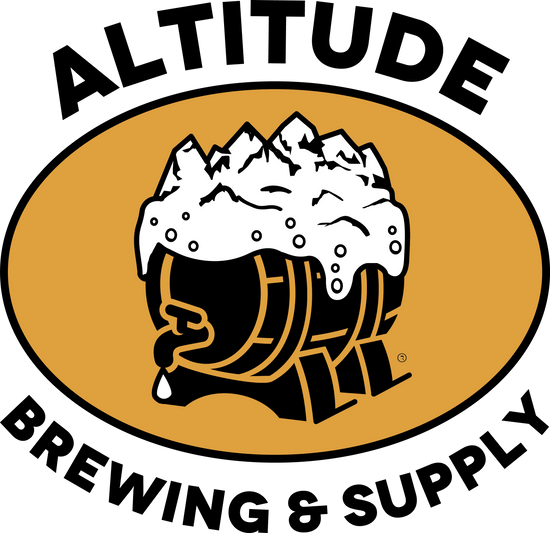{"id":4541202497645,"title":"White Labs Yeast - (V) 603 Torulaspora delbrueckii","handle":"white-labs-yeast-v-603-torulaspora-delbrueckii","description":"\u003cp\u003e\u003cspan\u003eWild yeast isolated from fruit trees in Denmark. This is one of the three strains that make up WLP611. This wild yeast has been used for ciders and wine but also ferments well for \u003c\/span\u003ebeer\u003cspan\u003e. Produces a lot of esters and contributes some phenolics as well. The yeast species \u003cem\u003eTorulaspora delbrueckii\u003c\/em\u003e is traditionally a longer fermentation and slower attenuator. This strain should be used in a mixed fermentation.\u003c\/span\u003e\u003c\/p\u003e\n\u003cdiv title=\"Page 13\"\u003e\n\u003cdiv title=\"Page 13\"\u003e\n\u003cp\u003eWLP603 \u003cem\u003eTorulaspora delbrueckii\u003c\/em\u003e\u003cspan\u003e \u003c\/span\u003eis POF+, this strain will contribute phenolic characteristics to finished products. \u003c\/p\u003e\n\u003cp\u003eWLP618 Saccharomycodes ludwigii - Limited maltose and maltotriose consumption\u003cbr\u003e\u003cbr\u003eWLP603 Torulaspora delbrueckii - Will not ferment maltose and maltotriose\u003cbr\u003e\u003cbr\u003eZygosaccharomyces rouxii - Partial inability to ferment maltose\u003cbr\u003e\u003cbr\u003eThese strains can have positive contributions to flavor, such as increased esters, with additionally keeping the fermentation of fermentable sugars low. These will produce beers with an alcohol percentage of around 1-1.5% ABV depending on strain and wort recipe. Using these yeasts will certainly require a certain level of research and development to obtain a delicious, low ABV beer that can compete with products currently on the market.\u003c\/p\u003e\n\u003cp\u003e \u003c\/p\u003e\n\u003c\/div\u003e\n\u003c\/div\u003e","published_at":"2020-03-16T12:50:16-06:00","created_at":"2020-03-16T12:50:16-06:00","vendor":"White Labs","type":"Brewing Ingredients Yeast","tags":["White Labs","Yeast"],"price":1695,"price_min":1695,"price_max":1695,"available":true,"price_varies":false,"compare_at_price":null,"compare_at_price_min":0,"compare_at_price_max":0,"compare_at_price_varies":false,"variants":[{"id":32093103751277,"title":"Default Title","option1":"Default Title","option2":null,"option3":null,"sku":"","requires_shipping":true,"taxable":true,"featured_image":null,"available":true,"name":"White Labs Yeast - (V) 603 Torulaspora delbrueckii","public_title":null,"options":["Default Title"],"price":1695,"weight":86,"compare_at_price":null,"inventory_quantity":-48,"inventory_management":"shopify","inventory_policy":"continue","barcode":"","requires_selling_plan":false,"selling_plan_allocations":[]}],"images":["\/\/www.altitudebrew.com\/cdn\/shop\/products\/white_20lab7_53fd4a9e-7f63-40b8-b7a9-216b00bbd21f.jpg?v=1584384617"],"featured_image":"\/\/www.altitudebrew.com\/cdn\/shop\/products\/white_20lab7_53fd4a9e-7f63-40b8-b7a9-216b00bbd21f.jpg?v=1584384617","options":["Title"],"media":[{"alt":null,"id":6625395114093,"position":1,"preview_image":{"aspect_ratio":0.98,"height":348,"width":341,"src":"\/\/www.altitudebrew.com\/cdn\/shop\/products\/white_20lab7_53fd4a9e-7f63-40b8-b7a9-216b00bbd21f.jpg?v=1584384617"},"aspect_ratio":0.98,"height":348,"media_type":"image","src":"\/\/www.altitudebrew.com\/cdn\/shop\/products\/white_20lab7_53fd4a9e-7f63-40b8-b7a9-216b00bbd21f.jpg?v=1584384617","width":341}],"requires_selling_plan":false,"selling_plan_groups":[],"content":"\u003cp\u003e\u003cspan\u003eWild yeast isolated from fruit trees in Denmark. This is one of the three strains that make up WLP611. This wild yeast has been used for ciders and wine but also ferments well for \u003c\/span\u003ebeer\u003cspan\u003e. Produces a lot of esters and contributes some phenolics as well. The yeast species \u003cem\u003eTorulaspora delbrueckii\u003c\/em\u003e is traditionally a longer fermentation and slower attenuator. This strain should be used in a mixed fermentation.\u003c\/span\u003e\u003c\/p\u003e\n\u003cdiv title=\"Page 13\"\u003e\n\u003cdiv title=\"Page 13\"\u003e\n\u003cp\u003eWLP603 \u003cem\u003eTorulaspora delbrueckii\u003c\/em\u003e\u003cspan\u003e \u003c\/span\u003eis POF+, this strain will contribute phenolic characteristics to finished products. \u003c\/p\u003e\n\u003cp\u003eWLP618 Saccharomycodes ludwigii - Limited maltose and maltotriose consumption\u003cbr\u003e\u003cbr\u003eWLP603 Torulaspora delbrueckii - Will not ferment maltose and maltotriose\u003cbr\u003e\u003cbr\u003eZygosaccharomyces rouxii - Partial inability to ferment maltose\u003cbr\u003e\u003cbr\u003eThese strains can have positive contributions to flavor, such as increased esters, with additionally keeping the fermentation of fermentable sugars low. These will produce beers with an alcohol percentage of around 1-1.5% ABV depending on strain and wort recipe. Using these yeasts will certainly require a certain level of research and development to obtain a delicious, low ABV beer that can compete with products currently on the market.\u003c\/p\u003e\n\u003cp\u003e \u003c\/p\u003e\n\u003c\/div\u003e\n\u003c\/div\u003e"}













